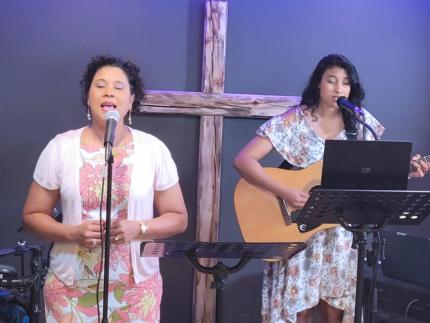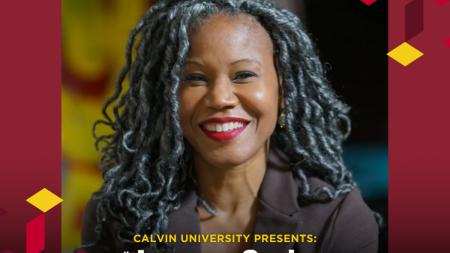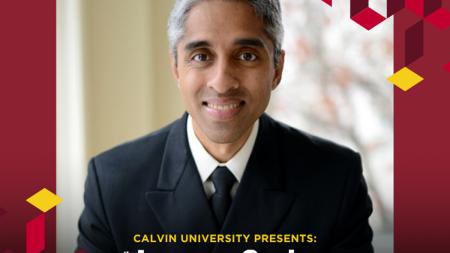Church Plants Grow During Pandemic

In a recent sermon, Mark Jallim, pastor of Living Hope Community Church in Toronto, spoke about the universal nature of the conversion experience that Paul had when he met Jesus on the road to Damascus (Acts 9).
“Every one of us who is born again can say we have had a Damascus-road experience,” said Jallim, a bivocational pastor who planted Living Hope church, which features a range of online ministries, not long before the COVID-19 pandemic came to Canada.
“We know what it looks like to have a conversion experience, and we all have a unique testimony about how God delivered us from the power of darkness and sin,” he said.
A native of Latin America who has lived in Canada for more than 25 years, Jallim works in finance, and with the help of his family he has been launching this new church.
“COVID hasn’t held us back,” he said. “So far, we have been mostly on Zoom. We have worship, a Bible study, a women’s coffee chat, a men’s fellowship, a ministry for young adults on Saturday, and a children’s ministry on Sunday. So far, it has been consistent. New people join us every week.”
Even during the challenging time of the pandemic, new church plants such as Living Hope in Toronto have been sprouting in many communities across the Christian Reformed Church in North America.
From one coast to the other, these churches are bringing in new believers, setting up valuable ministries, and teaching the gospel in circumstances that some might think would make it hard for churches to take root.
“I would say that what we are seeing in our emerging church plants is a powerful reminder that God is present and at work in our communities,” said Kevin DeRaff, acting Canadian director for Resonate Global Mission, who also leads Resonate’s North American regional teams. “Despite the many challenges of the past 18 months, new life continues to emerge in creative and even surprising ways.”
Al Postma, classis renewal leader for the CRCNA, agrees.
“As I read through classis minutes this fall, what I’m noticing is several new church plant initiatives showing up,” said Postma.
“Even during a time of a lot of pain and challenges, it’s easy to see that at the same time there is a lot of hope and possibility. . . . Certainly, COVID-19 has caused some classes to hit the pause button, but that is not universally true,” added Postma.
Planting new churches, Postma said, is included among the four milestones in the CRCNA’s Our Journey 2025 Ministry Plan:
- Cultivate practices of prayer and spiritual discipline, transforming our lives and communities by the power of the Holy Spirit.
- Listen to the voices of every generation, shaping us for ministry together.
- Grow in diversity and unity by seeking justice, reconciliation, and welcome, sharing our faith as we build relationships with and honor the cultures of our neighbors and newcomers.
- Share the gospel, live it missionally, and plant new churches in our neighborhoods as we discover how to connect with our local and global ministry contexts.
In western Canada there are examples of church growth, said Rick Braaksma, regional leader in that area for Resonate.
For example, the Bridge Church is a new online church that was launched by Ryan Pedde and has been growing significantly through the pandemic in Fort Saskatchewan, Alta., a community just outside of Edmonton.
However, said Braaksma, there are also some difficult stories, such as that of MosaicHouse in Edmonton, which “has been faithfully leaning into its online community but has had to close one of the campuses they were renting.”
In Vancouver, B.C., he added, The Tapestry ministries — four campuses: Richmond (Albert Chu), Marpole (Jesse Pals), Mundy Park (Sam Lee), and Tap Nights (Michael Yang) — “have continued to pull together and lean on one another. Some campuses are back to pre-COVID numbers, while others have a ways to go.
But being a ‘collective’ of mutual support has been a big plus for them.”
Clarence Presley, Western U.S. regional leader for Resonate, said he has seen the planting of several new churches.
“In partnership with Consejo Latino [the CRC’s Latino ministry group] and our Texas Church Planting Network, we have four new church plants launching in Texas,” said Presley. “We currently have three in Houston and one in western Texas.”
In addition, he said, he is excited to see the formation of a house church network planted and launched this past September in Lynden, Wash., by Sean Taylor. The new network currently has five house churches going.
Marco Avila, Resonate’s Eastern U.S. regional leader, said a few churches are being planted in Florida; a Hispanic church began this fall in Goshen, N.Y.; and an African American church launched in North Carolina.
Amy Schenkel, Resonate’s Great Lakes regional leader, noted that it has been a hard time for churches seeking to grow or even maintain themselves during the pandemic.
At the same time, in the midst of COVID limitations, she said, “people are more willing to be innovative. We can’t go back to the way we were before. Churches need to be more creative.”
City Hope, for example, has started in Grand Rapids, Mich., in recent months. It is meeting for evening worship in a building also occupied by Monroe Community Church in downtown Grand Rapids.
“We are a church for people of all abilities,” said Dave Vander Woude, City Hope’s pastor. “I believe God is calling us to do this. At least 25 percent of the people who come to our services are affected by some kind of disability.”
In launching this church plant, he said, they have been working with Eric Peterson of Benjamin's Hope, a church with a similar focus in Holland, Mich.
In addition to the connection with Benjamin’s Hope, added Vander Woude, God has opened the door for official partnerships/networks nondenominationally and cross-denominationally, and City Hope is a joint CRC and Reformed Church in America congregation.
“We want to be a church that represents God’s kingdom here on earth. There are a lot of people who don’t get out,” he said. “We also have a wider vision to help other churches become churches for people with all abilities.”


